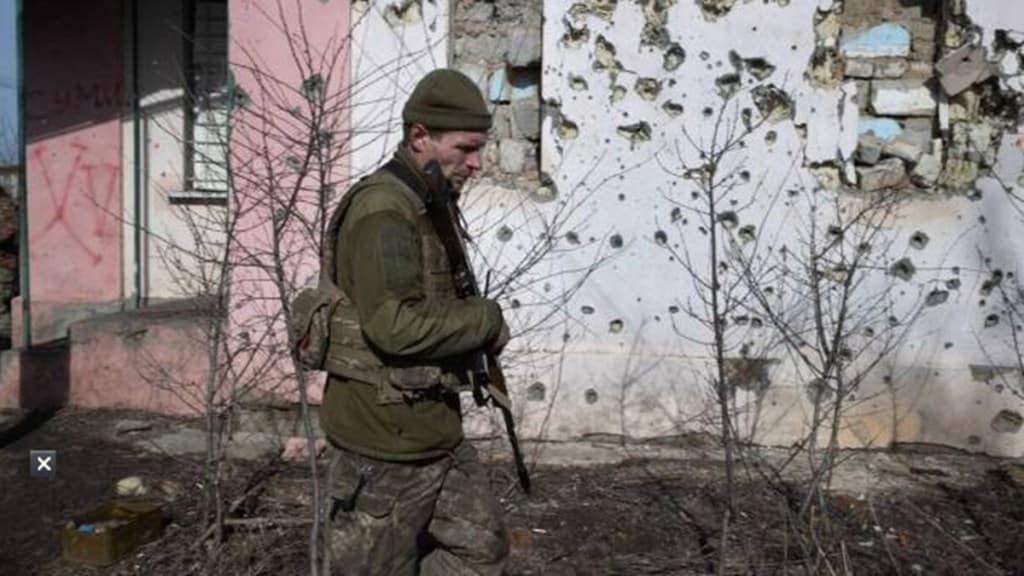By Dr Ajey Lele
It is known that various human activities are the main drivers of climate change. Over the decades, humans are found contributing towards climate change by undertaking burning of fossil fuels (coal, oil, and gas), destroying the forests and manipulating wetlands for the so-called development. In a limited sense, war also contributes towards climate change.
In recent times, this realisation has come after the 1991 Gulf War. During this war, around 600 Kuwaiti oil wells and facilities were put on fire. There were intentional oil spills into international waters. Also, significant numbers of bombs and missiles were used during this conflict leading to pollution and impacting the local environment significantly.
Today, there is an understanding that war is not only about human (and animal) casualties and damage to critical and other infrastructure. The environment is the unpublicized victim of war. It has been found that wars lead to many short-term and long-term environment related disasters. They contribute towards polluting fresh-water sources, damaging (burning) forests and crops and poisoning of soils. Now time has come for the states to realise that going to war is actually a disaster for the environment.
The United Nations (UN) attributes great importance to safeguarding the environment and identifies this activity as an important part of conflict prevention and peacebuilding strategies. If there is no lasting peace then the entire environmental ecosystem would be under stress contributing to global warming/climate change. Against this backdrop, on 5 November 2001, the UN General Assembly declared 6 November of each year as the International Day for Preventing the Exploitation of the Environment in War and Armed Conflict. Various UN agencies run programs on matters related to the wars impacting the natural resources. There are some direct and indirect sources of emissions during and after conflict. Normally, every year on the 6 November the UN organises some programs to create awareness about these issues. Mostly, the UN announces a specific theme every year on this subject. Surprisingly, 6 November 2023 did not witness any activity to highlight this issue. This silence of the UN is not understandable, patricianly when the ongoing wars: namely the Russia-Ukraine and Israel-Hamas are known to be impacting the geographies where they are being fought.
The ongoing Russian assault of Ukraine and its response is leading to widespread environmental damage. Possibly, this could lead to long-term and irreversible harm to the environment. Around 12,000 sq km of Ukraine’s nature reserves is now actually a war zone. Beyond loss and damage to human life, populations of rare endemic and migrant species and birds and animals are suffering great losses. Some ongoing efforts happening in Ukraine before the war for environmental projection like conservation projects have suffered badly. As per some estimates, after the end of the war it may take more than 15 years for Ukraine’s nature to recover (not fully). Possibly, more than 2000 rockets and bombs could have exploded in Ukraine so far. (As per Pentagon, this figure was 1200 till July 2022). Explosives, toxic clouds and fires have caused chemical pollution and also impacted the soil in the region. All this is leading to significant damage to human and environmental health. More importantly, any miscalculation/mishap in regards to nuclear reactor safety could lead to major environmental disaster.
At present, the environmental hazards unfolding in Gaza are more related to bodies rotting and the spread of dangerous chemicals owing to aerial bombing. Now, ground evasion is causing more challenges. As per the UN estimates more than 30% of houses and other concrete structures at Gaza have already been converted into rubble. Bursting of bombs and missiles leave a lot of soot in the air, while various metal pieces and material fragments would add to long-term pollution. This war is getting fought over a narrow strip of land however, still the impact would remain over the region and even Israel could face some challenges to their environment.
It is ironic that the major powers like the US and European Union make so much noise about issues related to climate change, but today they are only supporting these wars and not bothering about the possible impact on the environment. Unfortunately, there is very less debate about the possible environmental impact of these wars. The UN has lost an opportunity on 06 November to ‘name and shame’ various global powers, which are totally ignoring the possible environmental cost of these conflicts.
The 28th United Nations Climate Change conference (COP28) is to be held from 30 November until 12 December 2023 at Dubai. This conference would be taking place in the Middle East region, a region whose terrain, topography and weather patterns had a severe beating owing to the wars in the past and in the present. Actually, COP28 offers an opportunity to discuss this issue in greater detail.
The author is a consultant, MP-IDSA, New Delhi.
Disclaimer: Views expressed are personal and do not reflect the official position or policy of Financial Express Online. Reproducing this content without permission is prohibited.


